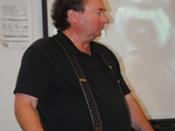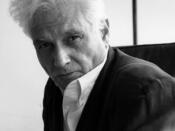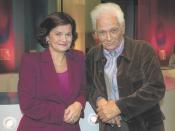With the end of colonialism and the emergence of a seemingly new world order, there raised a demand that research be useful and relevant, indicating that knowledge for its own sake was insufficient. As a result of this, what emerged was a new focus on 'development' and 'modernization' in the form of postmodernism. In these changing times, anthropology has come into contact with a variety of evolving concepts, including hybridity, montage, fluidity, and deconstruction. The question remains, how these concepts reflect the social, cultural and political changes that are occurring in study of anthropology today.
Postmodernism, as theoretical school of thought, is an intellectual movement that promotes itself as the 'antithesis' of modernism, rejecting the traditional theories that culture can be accurately described in certain situations. The term was introduced in the late 1940's, as anthropologists were forced to contend with the changes created by postmodernism in a variety of ways, beginning with the challenge to anthropological authority.
It is felt by many that it is incredibly arrogant for anthropologists to assume that they have both the capacity and mandate to dissect, interpret and describe the lives of people in other cultures, given the power and wealth imbalance of the colonial past, leaving the 'other' unable to speak for him/herself. Today, despite the multicultural and ethnically aware world that we live in, anthropologists are not capable of an unbiased and accurate ethnographic work. In part, there concern is founded. To my knowledge, there rests no undocumented peoples on the planet, as such, ethnologies today focus on sub-group structure and societal dynamics always influenced by the Western world.
Depending on the position that one takes the results can be very different. An example of this is an anthropologist that used the reflexive technique to understand the culture in which he...


